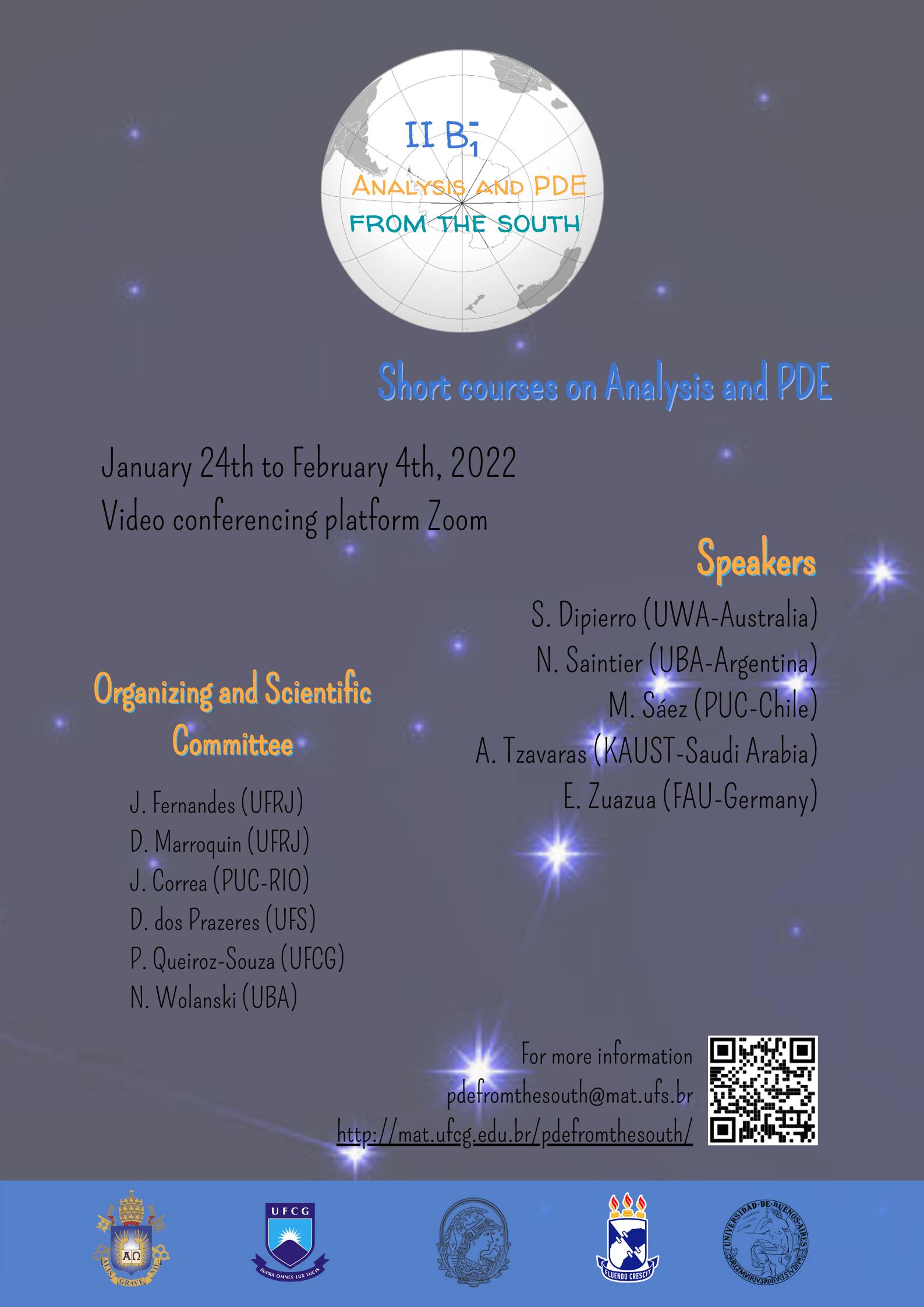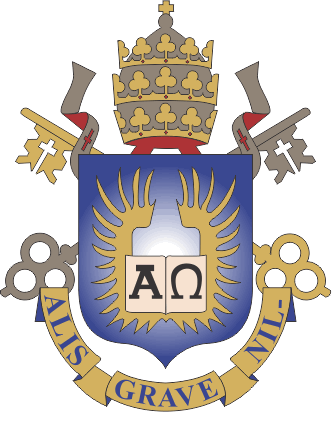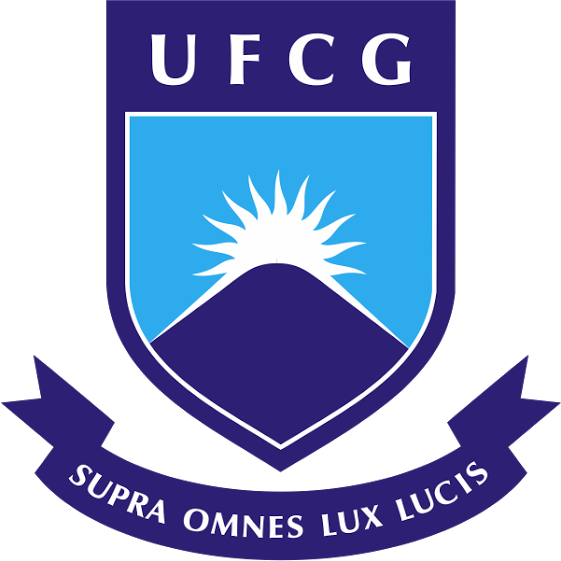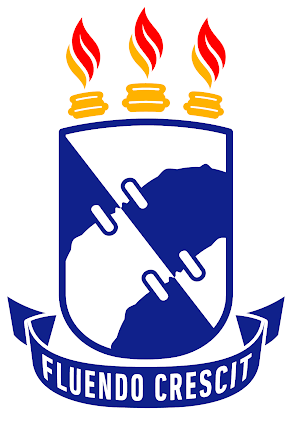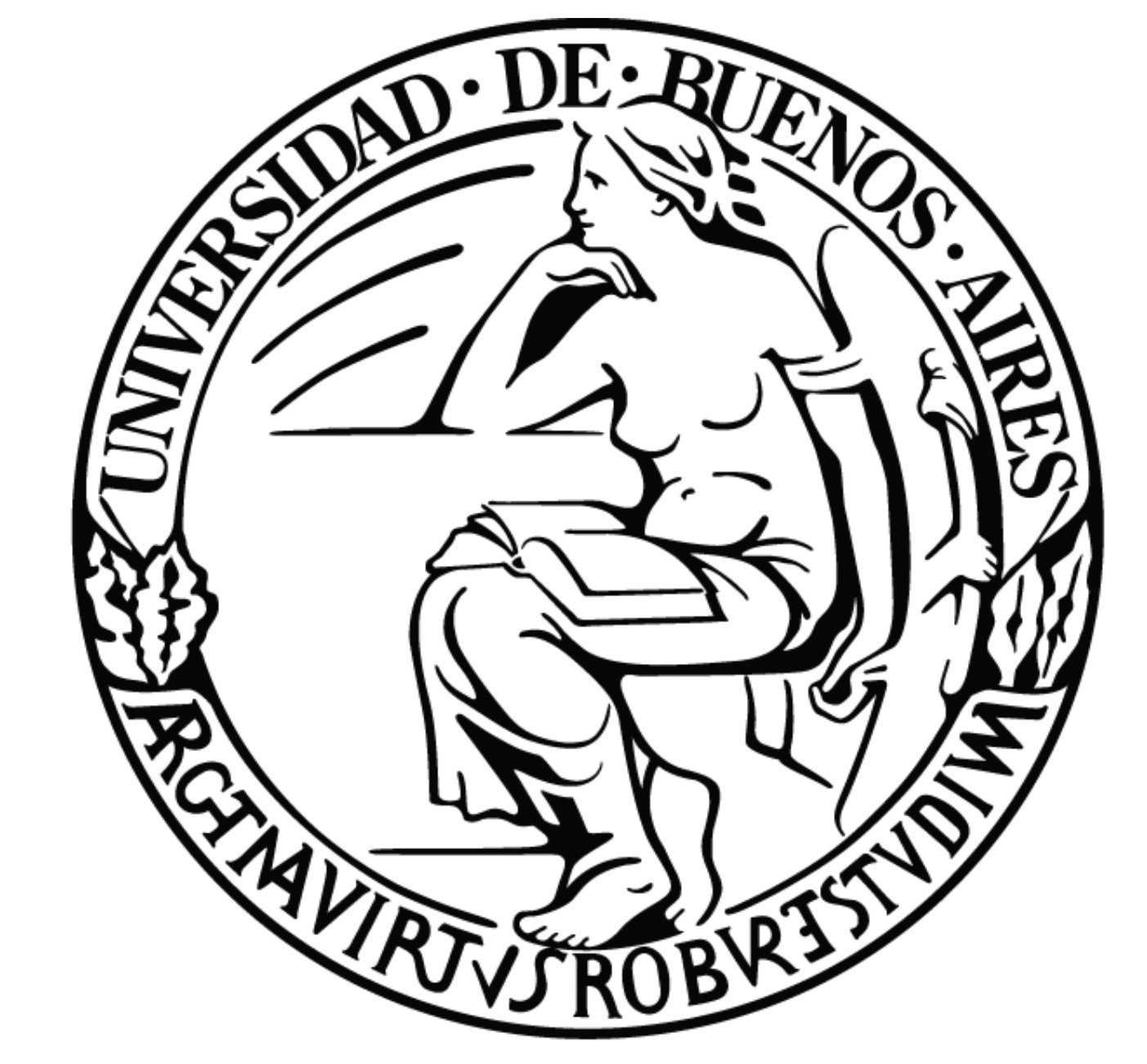An energy formula for fully nonlinear degenerate parabolic equations in one spatial dimension
Phillipo Lappicy, ICMC-USP
Abstract: Energy (or Lyapunov) functions are used in order to prove stability of equilibria, or to indicate a gradient-like structure of a dynamical system. Matano constructed a Lyapunov function for quasilinear non-degenerate parabolic equations with gradient dependency. We modify Matano’s method to construct an energy formula for fully nonlinear degenerate parabolic equations. In particular, we provide a new energy formula for the porous medium equation. This is the fruition of joint explorations with Bernold Fiedler (FU-Berlin) and Ester Beatriz (ICMC-USP).
___________________________________________
Title: Solvability of the Fractional Hyperbolic Keller-Segel System
Wladimir Neves, UFRJ
Abstract: We study a new nonlocal approach to the mathematical modelling of the Chemotaxis problem, which describes the random motion of a certain population due a substance concentration. Considering the initial- boundary value problem for the fractional hyperbolic Keller-Segel model, we prove the solvability of the problem. The solvability result relies mostly on fractional calculus and kinetic formulation of scalar conservation laws.
___________________________________________
On some non-isothermal models for two-phase fluids
Gabriela Planas, Unicamp
Abstract: In this talk, I will discuss issues about the existence of solutions for some non-isothermal Navier-Stokes-Allen-Cahn systems.
This kind of system can be considered as a model describing the motion of a mixture of two viscous incompressible fluids.
___________________________________________
Nonlocal supremals: relaxation for arbitrary dimensions
Antonella Ritorto, Katholische Universität Eichstätt-Ingolstadt
Abstract: In this talk, we introduce a new notion of convexity: Cartesian separate convexity, which coincides with separate convexity in the scalar case and it is strictly stronger in higher dimensions. We prove that Cartesian separate convexity is the necessary and sufficient condition for weakly* lower semicontinuity of nonlocal supremals. When it fails, we determine when there is structure-preservation during relaxation and provide a closed representation formula where the supremand is the Cartesian separately level convex envelope of the (diagonalized) original one. Unlike the scalar case where the relaxed functional is always structure-preserved, we present an example in the vectorial setting where the nonlocal supremal form is lost during relaxation. The results rely on a characterization of the asymptotic behavior of nonlocal inclusions, a theoretical result of independent interest, along with recent developments from [Kreisbeck & Zappale, Calc. Var. PDE, 2020].
Joint work with Carolin Kreisbeck (KU Eichstätt – Ingolstadt) and Elvira Zappale (Sapienza University of Rome).
___________________________________________
Internal controllability of non-localized solution for the Kadomtsev-Petviashvili II equation
Ivonne Rivas, Universidad del Valle
Abstract: The internal control problem for the Kadomstev-Petviashvili II equation, better known as KP-II, is the object of study in this paper. The controllability in L2(T) from the vertical strip is proved using the Hilbert Unique Method through the techniques of semiclassical and microlocal analysis.
___________________________________________
Eigenvalues homogenization rates for the p-Laplacian
Ariel Salort, Universidad de Buenos Aires
Abstract: In this talk we will review some results related to the limit of eigenvalue problems in the presence of highly oscillating functions.
We will be interested in the rates of convergence of the eigenvalues to the limit problems.
___________________________________________
The free boundary for almost-minimizers of two-phase free boundary problems
Mariana Smit Vega, Western Washington University
Abstract: In this talk, we will discuss almost minimizers of Alt-Caffarelli-Friedman type functionals. In particular, we will discuss the structure of “branch points” in their free boundary. This is joint work with Guy David, Max Engelstein, and Tatiana Toro.
___________________________________________
Nonphysical free boundaries in variational elliptic problems
Eduardo Teixeira, University of Central Florida
Abstract: I will discuss regularity estimates at interior critical points of solutions to degenerate elliptic problems of divergence form. The problem is connected to the famous $C^{p′}$ regularity conjecture. Namely, that the conjectured sharp regularity for a function whose p-laplacian is bounded is attained by a naive looking, radially symmetric example, whose p-laplacian is actually constant, begs the question: is there any further regularity left for non-homogeneous models? In this talk I shall discuss this question through a new prism; the so called nonphysical free boundaries. I will show that if the source term is away from zero, then (any) solution fails to be in $C^{p′+\epslion}$ for all $\episilon>0$. I will also show that improved estimates are eventually available at critical points whose source term vanish at a prescribed rate (which may depend on $u$ and/or $\nabla u$).

